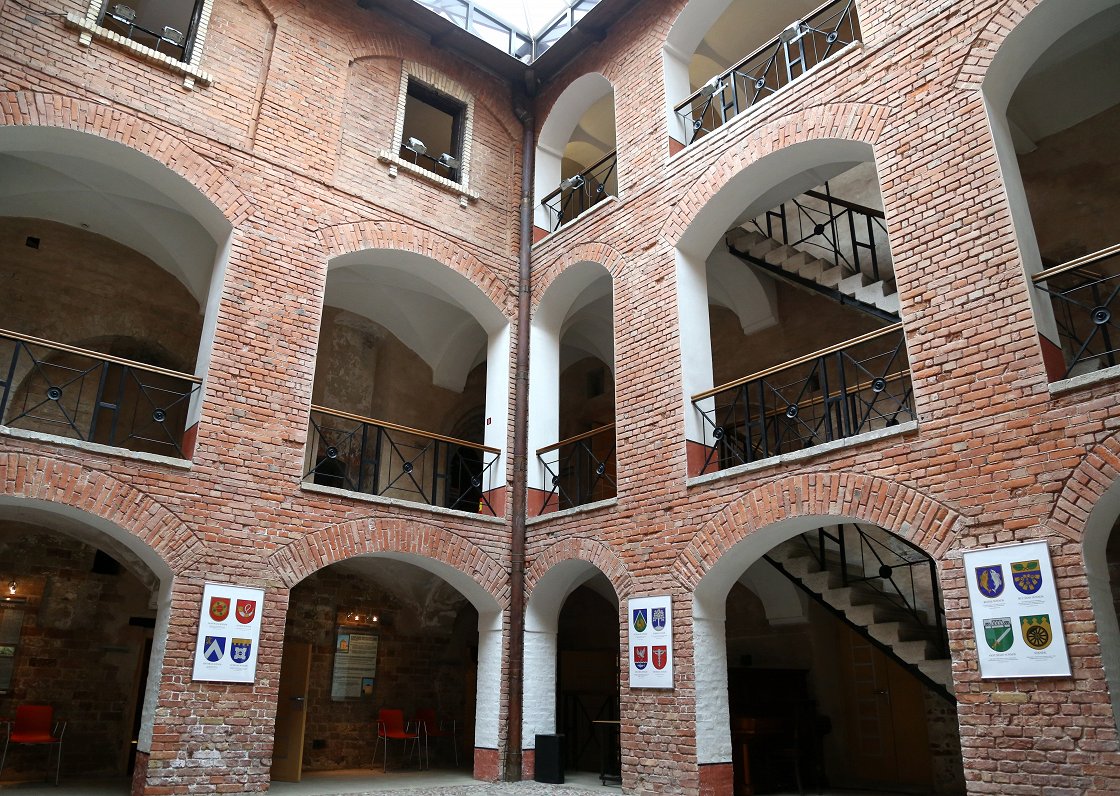The five-conference cycle titled “The State Before Statehood” aimed to be provocative in exploring the historical concept of Latvian statehood through the European cultural space. However the essay collection looks not for the roots of Latvian statehood in medieval Livonia, but for the roots of regional integration into the Western cultural space.
“This ethnically-oriented perspective of history has dominated here for a long time, and still dominates. But we want to say that's not the only possible perspective,” said University of Latvia History Professor Ilgvars Misāns.
“We have to learn to talk about medieval Livonia. We haven't had these types of discussions, or they have been very unsuccessful – it's either rejection or attraction. It's not a secret that today many perspectives of Livonia are very romanticized. Yet for others it's 800 years of slavery, destruction, subjugation and the dark midevial ages. And it seems that there is nothing in the middle,” said University of Latvia History Professor Andris Levāns.
“We want to offer to fill this void with new knowledge, with an attempt to take a look at Livonia a bit differently: what would be important today and why?” said Levāns.
A similar publication dedicated to medieval Estonia was released in Estonia in 2012, and the contemporary historical interpretation led to heated discussions. “It presents a possibility – dear friends, now let's imagine that our identity could be something more. It's not just the year 1918 or the first song festival. It's also Livonia. In some sort of way we're all from there. It's our cultural identity,” continued Levāns.
“The time-span is much longer, the horizon much broader than us looking at ourselves. This is also one of the attempts at creating this perspective,” said Levāns.
Historians emphasize that Livonia is important to the creation of modern statehood not because it was a predecessor, but because we can only understand statehood by understanding the linear history that ties it to the past and this historical region.
As previously reported, while the Crusades to the Holy Land are well known, the Northern Crusades to conquer and convert the inhabitants of the Baltic littoral remain fairly obscure. The first stop for anyone interested in the subject should be Eric Christiansen's marvelous history of the period from the publishing of the Papal Bull (the jihad of its day) authorizing the crusades, through the formation of the Livonian Sword Brothers, who seem to have been a brutal and ragtag bunch (their first leader, Wenno, had his head lopped off in a Cesis bar fight), their land grab and eventual takeover by the better-organized but no less brutal Teutonic Knights.
Also reported, in the old Livonian times many words from Middle Low German flowed into Latvian. These words were related to many things brought in by the Germans, like the words amats (profession), dambis (dam), būvēt (to build) and many others that fit organically into Latvian, including many words for simple things like bikses (trousers) which we can however call in a half-forgotten Latvian name - ūzas.



























